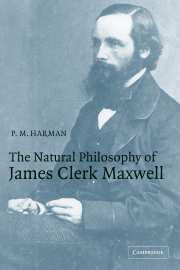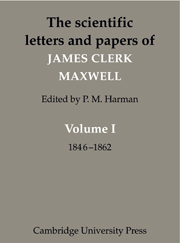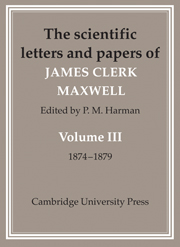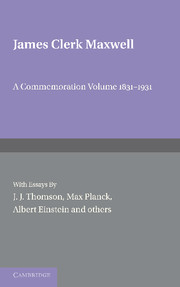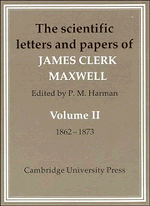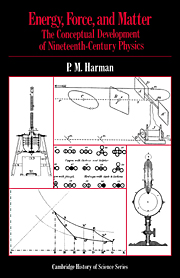The Natural Philosophy of James Clerk Maxwell
This book provides an introductory yet comprehensive account of James Clerk Maxwell's (1831-79) physics and world view. The argument is structured by a focus on the fundamental themes that shaped Maxwell's science: analogy and geometry, models and mechanical explanation, statistical representation and the limitations of dynamical reasoning, and the relation between physical theory and its mathematical description. This approach, which considers his physics as a whole, bridges the disjunction between Maxwell's greatest contributions: the concept of the electromagnetic field and the kinetic theory of gases. Maxwell's work and ideas are viewed historically in terms of his indebtedness to scientific and cultural traditions, of Edinburgh experimental physics, and of Cambridge mathematics and philosophy of science, which nurtured his career.
Peter M. Harman is Professor of the History of Science at Lancaster University. He has published primarily on the history of physics and natural philosophy in the 18th and 19th centuries, the period from Newton to Maxwell. His previous books include Energy, Force, and Matter (Cambridge, 1982), The Investigation of Difficult Things (Cambridge, 1992), After Newton: Essays on Natural Philosophy (Variorum, 1993), The Scientific Letters and Papers of James Clerk Maxwell, volume 1 (Cambridge, 1990), volume 2 (Cambridge, 1995).
- The most important physicist in the two centuries separating Newton and Einstein
- Based on a full range of published and manuscript sources
- A comprehensive interpretation of Maxwell's physics, accessible to the non-specialist
Reviews & endorsements
eThe book is wonderfully informative and insightful throughout; its merit lies as much in stimulating questions as in providing answers...what is most impressive about this book is its treatment of the whole range of Maxwell's activity as a natural philosopher with this kind of depth and nuance, making possible a synthesis that constitutes authentic progress in Maxwell studies." American Scientist
"James Clerk Maxwell brought about not one but two distinct revolutions in physics...In The Natural Philosophy of James Clerk Maxwell, Peter Harman explores both and allows us to experience a mind so mysteriously prescient as to see truths decades before anyone else did...Harman tells his tale skillfully, with an admirable use of quotations from Maxwell's published and unpublished writings." Physics Today
"...the author draws attention to the importance of Maxwell's studies in philosophy, which were to influence him greatly later, and the state of the ideas concerning the fundamentals of mechanics in the middle of the nineteenth century. After these preliminaries, the author goes on to discuss the work of Maxwell. Amongst the lesser-known topics which Maxwell studies are mixing colours, Saturn's rings and metrology, including the measurement of velocity of light, which was later to play an important role in his researches...This is an interesting book, showing the thoughts of a Scot who was undoubtedly one of the greatest natural philosophers in Britain...any physicist/applied mathematician will find much of interest in this book and it has my recommendation..." Ll. G. Chambers, Mathematical Reviews
Product details
May 2001Paperback
9780521005852
248 pages
229 × 153 × 20 mm
0.406kg
10 b/w illus.
Available
Table of Contents
- Preface
- 1. Introduction: Maxwell and the history of physics
- 2. Formative influences
- 3. Edinburgh physics and Cambridge mathematics
- 4. Physical and geometrical analogy
- 5. Models and mechanisms
- 6. Dynamical and statistical explanation
- 7. Geometry and physics
- 8. Physical reality: ether and matter
- 9. Physics and metaphysics.

